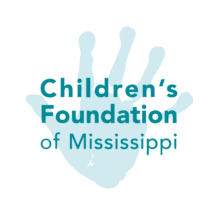Early Childhood Council Information and FAQ
What is an ECC?
An ECC is a group of community leaders from all sectors who are united by their common interest in improving conditions for children and families in their neighborhoods, cities, or counties.
What purpose does an ECC serve?
The purpose of an ECC is to identify the unique needs of their community as they relate to early childhood.
What should the goals of an ECC be?
Early Childhood Councils should:
- work to expand and deepen civic engagement with policymakers, business leaders, educators, healthcare providers, and parents on children's issues identified in their communities
- support or advocate for policies that continue to expand state funding for programming such as high‐quality public Pre‐K in Mississippi
- serve as a facilitator and connector to build partnerships with existing non-profits or programs with established track records. Examples are Excel by 5, Campaign for Grade-Level Reading, Parents Campaign, Research and Education Fund, United Ways, Reach Out and Read, Mind in the Making/VROOM, Resource and Referral Centers etc.
- implement unique early childhood programs or resources in areas with a lack thereof
- determine what programs or services are not currently in their communities but need to be accessed
What is an ECC Planning Grant not intended for?
While the individual work, resources, and infrastructures of established organizations are important to this work, this grant money should go specifically toward organizing diverse and unique coalitions working toward a common goal. Therefore, this grant should not be used for a single purpose or a purpose that does not involve the community in a long-term, sustainable way. Therefore, this grant should not be used for plans such as:
- a one-time resource drive or collection
- funding for infrastructure improvements and/or general financial assistance for daycare, preschool, church, or other programs
- a one-time donation to a religious, academic, or health organization
What is different about an ECC from other community coalitions?
- A focus on early childhood, specifically ages 0-5
- Members are not limited to any one type of occupation, agency representation, or demographic
- While the ECCs are established by CFM, ECCs work on needs unique to their area
- CFM uniquely serves ECCs as a reliable resource, advocate, and advisor
- The outcomes of each ECC can be used as models for state-wide change
- ECCs work independently but are part of the larger ECC network, allowing them to share best practices and resources with one another, which will ultimately impact the entire state
Who can apply?
- Groups that are currently meeting, formally or informally, to address early care and education needs at the local level (whether it is within a municipality or across a county)
- Communities that do not currently have groups working on early care and education needs but want to explore more possibilities for children in their communities/counties are also encouraged to apply for the planning grants
What are the requirements to apply?
Any organization or group can apply. If an organization is not a 501c3, it must work in conjunction with 501c3, which serves as the ECC fiscal agent.
What is CFM looking for in an applicant?
The ideal applicant has an outlined plan for forming the council, a general idea of what they want to achieve over a 10-month timeline, and how the funds will be utilized. The applicant will serve as the primary contact and Project Coordinator for the council.
What role will CFM play in the ECCs?
CFM will offer support as a liaison, resource, advisor, guide, and organizer to help encourage growth and sustainability for ECCs. While each ECC operates independently from one another, CFM is willing to serve as the convener of the groups and attend events as needed.
What are CFM’s long-term plans for ECCs?
CFM hopes to have an established council in every county in less than ten years. This large network of ECCs can dramatically improve the landscape for Mississippi’s children by assessing local needs and addressing them. While individual ECCs will work at improving their local outcomes, the overall network of ECCs can create a statewide domino effect by sharing successes, resources, and lessons learned with one another.
Who should join an ECC?
ECCs should reflect the entire community; individuals from all industries are encouraged to participate, including but not limited to:
- healthcare workers
- educators and school administrators
- childcare employees
- policymakers
- business and economic leaders
- philanthropists
- child advocates
- parents, grandparents, and other caretakers
- local artists and creatives
By convening individuals from a multitude of sectors, ECCs will help unify a community to streamline goals for improving outcomes for children.


